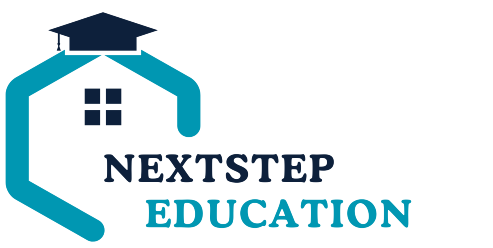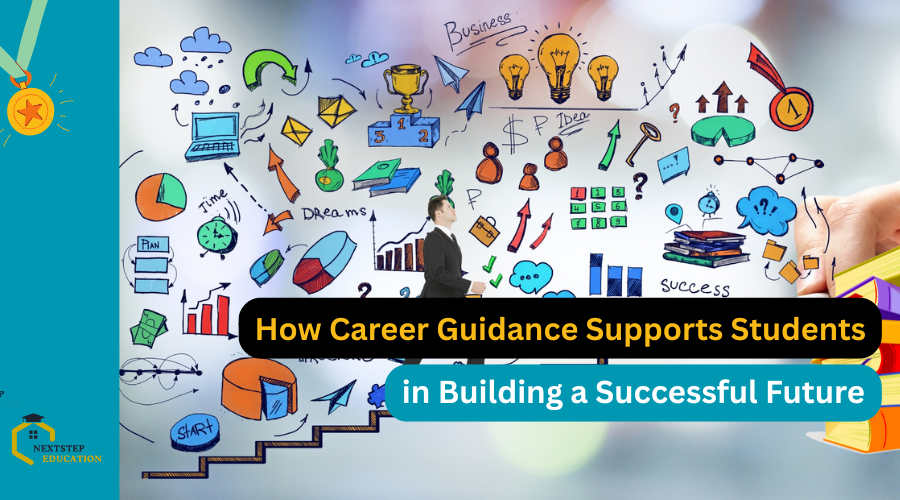Choosing a career is one of the most important decisions in a student’s life—and often, one of the most confusing too. With countless career paths, changing industry trends, competitive exams, and societal pressure, many students feel devastated while trying to plan their future. This is where career guidance and counseling come into play.
Career guidance is not just about choosing a job; it’s about discovering a student’s interests, strengths, skills, and aspirations—and then aligning them with the right academic and professional direction. Whether you’re a high school student doubtful about which stream to take, or a college student thinking about career options or studying abroad, career counseling offers clarity and confidence at every step.
In this blog, we’ll explore the importance of career counseling, how it supports students in building a successful future, and why early planning makes a lifelong difference.
Importance of Career Counseling for Students
In today’s fast-evolving academic and professional world, career counseling has become more important than ever before. Gone are the days when students would blindly follow traditional career paths based on family expectations or societal norms. Today, students need personalized guidance to navigate through a wide range of opportunities, courses, and industries.
Why is Career Counseling Important?
-
Self-Discovery: Career counseling helps students understand their aptitude, personality, interests, and values. This self-awareness forms the foundation of effective career planning.
-
Informed Decision-Making: Rather than choosing a career based on guesswork or peer pressure, students can make evidence-based and goal-oriented decisions.
-
Clarity & Confidence: It eliminates confusion and anxiety, especially during critical academic phases like after Class 10 or Class 12, by showing a clear roadmap ahead.
-
Avoiding Costly Mistakes: Choosing the wrong course or college can be time-consuming and expensive. Career guidance helps students select wisely and avoid regret.
-
Parent-Student Alignment: Counselors often act as impartial bridges between students and parents, helping both parties come to a mutual understanding about career paths.
Whether a student is academically strong or still exploring options, career counseling provides a structured, non-judgmental space to plan a fulfilling and successful future.
How Career Guidance Helps Students Shape Their Future
Career guidance is not just about choosing a job title—it’s about building a way that aligns with a student’s passion, skills, and long-term goals. A well-guided student is more likely to stay focused, feel confident, and make choices that support long-term success and satisfaction.
Key Ways Career Guidance Supports Students:
-
Stream Selection in School: Choosing between Science, Commerce, or Humanities after Class 10 can be stressful. Career counselors help students select the stream that best fits their aptitude and interests.
-
Exposure to Career Options: Students are introduced to a broad range of careers, including new-age fields like Data Science, Cybersecurity, Animation, Environmental Law, Sports Management, etc., beyond the traditional ones.
-
College & Course Selection: Counselors help in selecting the right course and college, both in India and abroad, based on the student’s academic profile, goals, and financial preferences.
-
Exam Planning: Students receive guidance on which entrance exams to prepare for (like CUET, JEE, NEET, CLAT, SAT, etc.) based on their career choices.
-
Confidence Building: A guided student feels more prepared and less worried about the future because they have a structured plan and support system.
-
Realistic Goal Setting: Students learn to set short- and long-term goals, helping them stay motivated and on track academically and professionally.
Career guidance isn’t just advice—it’s a step-by-step process that helps students build direction, discipline, and purpose in their academic and professional journey.
Career Planning for Long-Term Success
Effective career planning goes beyond simply choosing a course or a college—it involves setting goals, mapping steps, and staying flexible in a changing world. Career guidance provides students with the structure and strategy they need to take control of their future, rather than leaving it to chance.
Step-by-Step Career Planning Process:
-
Self-Assessment:
Students undergo tests to understand their aptitudes, interests, values, and personality type. This helps identify careers that are a natural fit. -
Career Exploration:
Counselors introduce students to various industries, job roles, and future career trends, both traditional and emerging. -
Goal Setting:
Short-term goals (like scoring well in boards or preparing for an entrance exam) and long-term goals (like becoming a data analyst or civil servant) are established. -
Academic Planning:
Guidance is provided on what subjects to select, which colleges to apply to, and what qualifications are required for specific careers. -
Skill Development:
Students are motivated to develop critical life and professional skills such as communication, leadership, coding, or data analysis, depending on their goals. -
Continuous Review:
Plans are revisited and updated regularly to reflect changes in interest, new opportunities, or shifting market trends.
Career planning with expert guidance builds a sense of direction, makes students future-ready, and increases their chances of success and satisfaction in the long run.
Career Development for Teenagers – Why Start Early?
The teenage years are a critical window of self-discovery, decision-making, and growth. Starting career guidance early helps students develop clarity, confidence, and purpose at a stage when their academic and personal identities are still forming. This early exposure ensures they don’t just follow the crowd but create their unique path to success.
Why Early Career Development Matters:
-
Better Academic Motivation:
When students understand how school subjects connect to real-world careers, they become more active and focused in academics. -
Stronger Decision-Making Skills:
Early guidance helps teenagers become independent thinkers who can assess pros and cons, research options, and make confident choices. -
Time to Explore:
Teenagers have more flexibility to explore different interests, try short-term courses, attend workshops, or intern—allowing them to test the waters before committing. -
Prevents Future Stress:
Many students panic in Class 12 or after graduation due to a lack of planning. Early career guidance avoids this by giving students a head start. -
Builds Lifelong Habits:
Career planning encourages discipline, goal-setting, and long-term vision—skills that are useful far beyond academics. -
Competitive Advantage:
Students who plan early are better prepared for entrance exams, skill certifications, college admissions, and internships than those who delay.
In short, starting early means students build a strong foundation—academically, emotionally, and professionally—for whatever career path they choose.
Role of Career Counselors and Tools
Career counselors play a vital role in helping students make informed, practical, and personalized career decisions. They act as mentors, guides, and planners—equipping students with the right information, mindset, and strategies to achieve their goals. Backed by modern tools and data, career guidance today is much more than just giving advice.
How Career Counselors Help Students:
-
Personalized Career Mapping:
Counselors assess each student’s aptitude, interests, personality, and values to suggest the most suitable career paths. -
Academic & Course Guidance:
They help students choose the right streams, courses, colleges, and entrance exams based on both their profile and market demand. -
Objective & Unbiased Support:
Unlike peer or parental views, counselors provide neutral and data-driven guidance, helping students avoid wrong or forced decisions. -
Decision-Making Support:
Through goal setting, SWOT analysis, and career exploration activities, students gain clarity on what to pursue and how to pursue it. -
Skill-Building Guidance:
Counselors recommend internships, online certifications, workshops, and soft-skill training to strengthen the student’s overall profile.
Career Guidance Tools Used:
-
Psychometric Tests – To assess career interest, personality type (MBTI, Big Five), and learning style
-
Aptitude Tests – Evaluate numerical, verbal, logical, and spatial reasoning
-
Career Dashboards – Track progress, explore career clusters, and set goals
-
Virtual Counseling Platforms – Allow access to expert support regardless of location
Together, career counselors and modern tools offer a powerful ecosystem of support that helps students move from confusion to clarity.
Benefits of Career Guidance in Schools and Colleges
Combining career guidance with school and college education empowers students to make smart, confident decisions about their future. It’s not just about picking a job—it’s about shaping a lifelong path that is aligned with one’s skills, values, and passions.
Key Benefits of Career Guidance:
-
Informed Academic Choices:
Students are better prepared to choose the right subjects, streams, or degree programs that match their career goals. -
Higher Motivation & Focus:
When students see how their current studies connect to real-world careers, they become more engaged in academics. -
Improved College & Course Selection:
Guidance helps students select the best-fit colleges, specializations, and entrance exams, reducing the risk of regret or course-switching later. -
Early Exposure to Careers:
Career counseling introduces students to emerging fields, global opportunities, and unconventional careers that they may not discover on their own. -
Skill Development:
Counselors help identify areas for soft skill improvement such as communication, problem-solving, and leadership—key to employability. -
Increased Parental Awareness:
Sessions often include parents, helping them support their child’s decisions with clarity and understanding. -
Higher Placement & Success Rates:
Students who receive structured guidance are more likely to land internships, and jobs, or gain admission to top universities.
In summary, career guidance transforms confusion into clarity, hesitation into confidence, and uncertainty into action—helping students take ownership of their future.
Tips for Students to Get the Most Out of Career Counseling
Career counseling is most effective when students actively participate in the process. It’s not just about sitting through a session—it’s about being open, curious, and ready to explore. Whether you\’re in school or college, here’s how to maximize the benefits of career guidance:
1. Be Honest During Assessments
Psychometric and aptitude tests only work if you answer sincerely. Don’t try to guess the \”right\” answer—respond based on how you truly think and feel.
2. Ask Questions Freely
Treat every counseling session like a two-way conversation. Ask about careers, courses, industry trends, alternative options, and doubts you have—nothing is too small.
3. Stay Curious & Open-Minded
You may discover careers you\’ve never heard of or considered. Keep an open mind—sometimes your perfect fit isn’t what you initially imagined.
4. Involve Your Parents or Mentors
Bringing your parents into the process can help align everyone\’s expectations and make planning easier. Counselors often help bridge this communication gap.
5. Use Online Resources and Tools
After your session, explore recommended tools, videos, and research platforms. Many career portals offer free quizzes, webinars, and career maps to dive deeper.
6. Keep Revisiting Your Plan
Your interests may evolve—and that’s okay! Keep updating your career roadmap and checking in with a counselor if your goals shift.
7. Start Early, Stay Consistent
Don’t wait till the last minute. Starting as early as Class 8–10 allows you more time to prepare, build your skills, and make thoughtful choices.
Conclusion
In an age of endless career choices and rapid industry changes, students need more than just academic grades—they need clarity, direction, and confidence. Career guidance provides structured support by helping students align their interests and strengths with real-world opportunities.
From choosing the right stream or college course to discovering emerging fields like AI, sustainability, and digital marketing, career counseling empowers students to make informed decisions early on. It doesn’t just reduce confusion—it builds a roadmap to success.
Whether you’re a student, parent, or educator, investing in professional career guidance is no longer optional—it’s essential for building a future that is both significant and successful.
Frequently Asked Questions (FAQs)
Q1. What is career guidance and why is it important?
Career guidance helps students examine their strengths, interests, and career options to make informed academic and professional choices. It ensures long-term clarity and satisfaction.
Q2. At what age should students start career counseling?
Career guidance can begin as early as Class 8–10. Starting early allows more time to explore interests, build skills, and plan future goals.
Q3. How does a career counselor help in a stream or course selection?
A counselor uses psychometric tools, aptitude tests, and one-on-one sessions to match a student’s profile with the most suitable streams and courses.
Q4. Can career counseling help with studying abroad?
Yes, many career counselors specialize in study abroad planning, helping students choose countries, universities, scholarships, and application strategies.
Q5. Is online career guidance effective?
Yes, many students benefit from virtual counseling sessions, which include online tests, expert advice, and detailed reports—even from the comfort of home.
Q6. Are career assessments accurate?
While no test is perfect, scientifically designed assessments (when answered honestly) provide valuable insights that guide decision-making with clarity.





